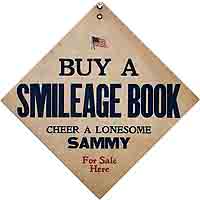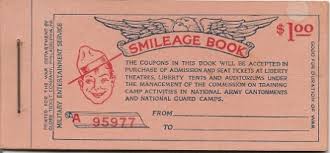While reading the newspapers, I ran across “Smileage Books”, yet another way the people at home were being asked to support the soldiers. An article explaining this new program was written by Harry P. Harrison, the chairman of the Military Entertainment Council (Kinsley Mercury, January 31, 1918). This council was to provide programs of entertainment for the soldiers in the National Guard and army training camps within the U.S.
“The council has originated a type of book of tickets that members of the soldiers’ family and his friends may send to him at the front. They are to be called “Smileage books” and will be made up of coupons somewhat like the mileage books of the railroad. In books of one size, 20 coupons will be sold for a dollar. In books of another size, 100 will be sold for five dollars. These coupons will be good for payment for seats at any performance in any camp theatre.”
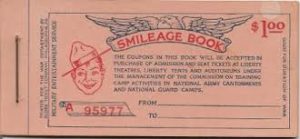
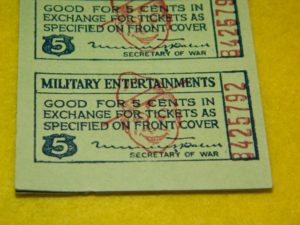
Admission cost was from 10¢ to 25¢ per seat to see Broadway plays, vaudeville shows, concerts, lectures and also amateur productions put on by the soldiers themselves.
“Ordinarily the cost of booking such attractions would be prohibitive. But the performers and managers have met the Council with such patriotic co-operation as to put these productions within the reach of every soldier….Operating expense has been reduced to bedrock.”
Two prominent actors who immediately signed on to perform were the beautiful Maude Adams, who played Peter Pan on Broadway in 1905 and the dashing William Faversham.

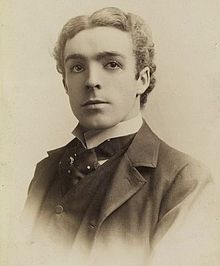
These entertainments seem to be forerunners of the USO performances of World War II and the wars to follow.
The entertainments were performed at the camps in “the new Liberty theaters builded by the Government, the large auditoriums of the Y.M.C.A., and—where the weather permits – the tents which have been provided by the Chautauqua managers.”
The article also reports that as cheap as the council is making the entertainments, many soldiers would not be able to attend because “Thousands of them are sending home practically all their pay.” The solution is for people to purchase them for not only their friends and families but for other soldiers who may not have anyone to buy books for them.
“As gifts these Smileage books will have rather a distinctive character. Each time the soldier tears coupons from his book, he will renew his sense of attention from the sender. Every book will constitute a current of interest between the man at the front and the folks back home. Often, of course, one soldier will receive many books; and then he will do the thing which is characteristic of the American soldier throughout our history – he will share his abundance with his mates.”
